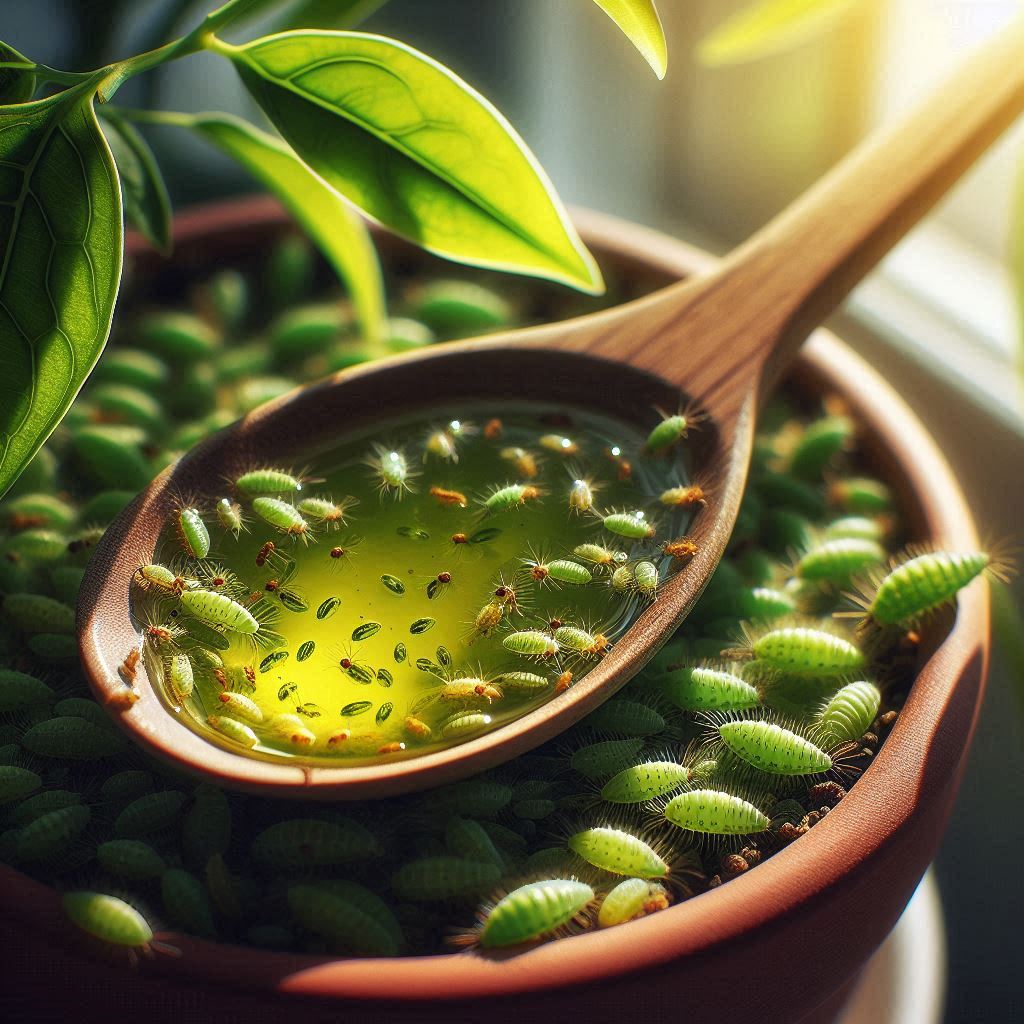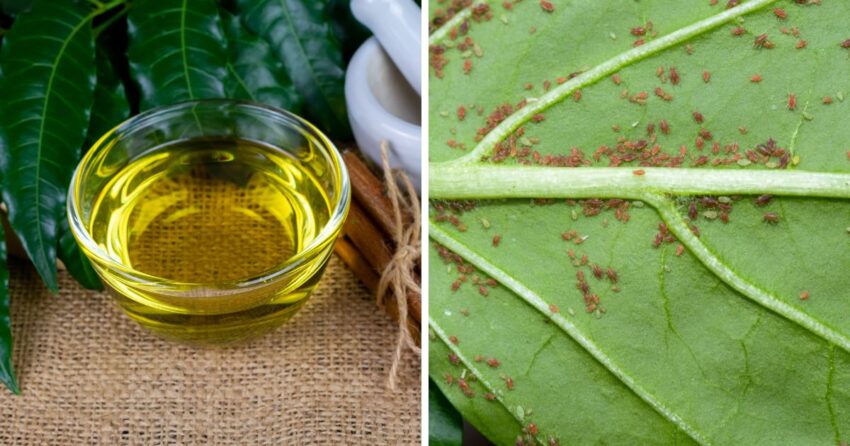If you’re a gardener, you’ve likely encountered those pesky little creatures known as aphids. These tiny insects can wreak havoc on your plants, sucking the sap out of them and leaving behind a trail of damage. But what if I told you there’s a natural way to get rid of them for good? Yes, with just one tablespoon of a special mixture, you can send those aphids packing forever! Let’s dive into this magical solution.
Understanding the Aphid Problem
Aphids are small, sap-sucking insects that can cause significant damage to plants. They are usually found in clusters, feeding on the tender parts of plants such as new growth, leaves, and stems. The damage caused by aphids includes yellowing leaves, stunted growth, and sometimes the transmission of plant viruses. They excrete a sticky substance known as honeydew, which can lead to the growth of sooty mold on plants.
The Natural Solution: Neem Oil

Neem oil is a natural, biodegradable product derived from the seeds of the neem tree (Azadirachta indica). It has been used for centuries in agriculture and traditional medicine. Neem oil works as an insect repellent, insecticide, and fungicide, making it an excellent choice for dealing with aphids.
But why is neem oil so effective? Neem oil contains azadirachtin, a compound that interferes with the feeding and reproduction of insects. When aphids ingest azadirachtin, it disrupts their hormonal system, preventing them from molting, growing, and laying eggs. Over time, this leads to a significant reduction in the aphid population.
How to Use Neem Oil for Aphid Control
Using neem oil to get rid of aphids is straightforward. Here’s a simple recipe that requires just one tablespoon of neem oil:
Ingredients:
- 1 tablespoon of neem oil
- 1 teaspoon of mild liquid soap (like dish soap)
- 1 liter of water
Instructions:
- Mix the Ingredients: In a spray bottle, combine one tablespoon of neem oil with one teaspoon of mild liquid soap. The soap helps the neem oil mix with water.
- Add Water: Fill the spray bottle with one liter of water. Shake well to ensure the neem oil and soap are thoroughly mixed.
- Apply the Solution: Spray the mixture directly onto the aphids and affected plant areas. Be sure to cover the undersides of leaves where aphids often hide.
- Repeat as Necessary: For severe infestations, repeat the application every few days until the aphids are gone.
Benefits of Using Neem Oil
Using neem oil has several advantages over chemical pesticides:
- Environmentally Friendly: Neem oil is biodegradable and doesn’t harm beneficial insects like bees, ladybugs, and butterflies when used correctly.
- Safe for Humans and Pets: Neem oil is non-toxic to humans and pets, making it a safe choice for your garden.
- Multiple Uses: Besides aphids, neem oil can control other garden pests such as spider mites, whiteflies, and caterpillars. It also has antifungal properties, helping to prevent diseases like powdery mildew and black spot.
- Cost-Effective: A small amount of neem oil goes a long way, making it an economical solution for pest control.
Other Natural Aphid Repellents
While neem oil is highly effective, there are other natural remedies you can use to combat aphids:
- Soap and Water: A simple mixture of water and dish soap can suffocate aphids. Mix one teaspoon of dish soap with a liter of water and spray directly on the insects.
- Garlic Spray: Garlic has natural insect-repelling properties. Blend a few cloves of garlic with water, strain the mixture, and spray it on your plants.
- Essential Oils: Essential oils like peppermint, clove, and rosemary can repel aphids. Add a few drops of essential oil to water and spray on your plants.
- Companion Planting: Planting certain herbs and flowers, such as marigolds, nasturtiums, and chives, can deter aphids and attract beneficial insects that prey on them.
Preventing Aphid Infestations
Prevention is always better than cure. Here are some tips to keep aphids away from your garden:
- Regular Inspection: Check your plants regularly for signs of aphids. Early detection can prevent a minor problem from becoming a major infestation.
- Healthy Plants: Healthy plants are less susceptible to aphid damage. Ensure your plants receive proper nutrients, water, and sunlight.
- Beneficial Insects: Encourage beneficial insects like ladybugs, lacewings, and parasitic wasps that feed on aphids.
- Remove Weeds: Weeds can harbor aphids, so keep your garden free of unwanted plants.
Conclusion
Aphids can be a gardener’s nightmare, but with the right approach, they don’t stand a chance. Neem oil, with its natural insect-repelling properties, is a powerful ally in the fight against these pests. Just one tablespoon of this magical mixture can help you reclaim your garden and ensure your plants thrive.
So next time you see those tiny invaders, remember that nature has already provided a solution. Grab your neem oil, mix up a batch, and watch the aphids disappear for good! Happy gardening!

